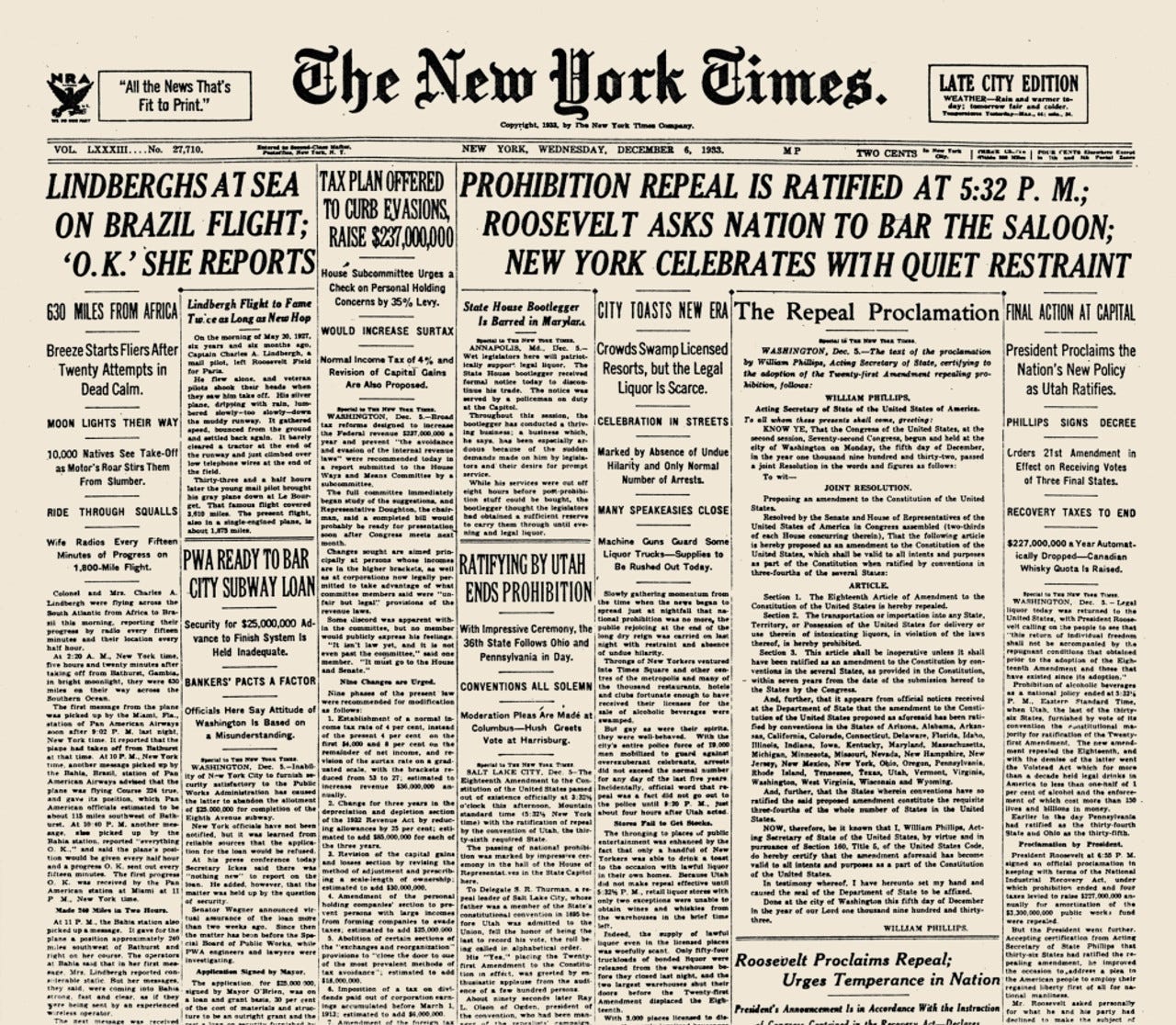The Message of Repeal Day: We Can Do Better
To Celebrate the 90th Anniversary of Repeal of Prohibition we should repeal 90 year old laws that do nothing but stifle innovation
December 5 marks the 90th anniversary of the Repeal of national Prohibition of the sale and consumption of alcoholic beverages in the United States. It was on this day in 1933 that the 21st Amendment was ratified, essentially erasing the 19th Amendment that instituted Prohibition. This also means that we are roughly a century out from the moment that Prohibition was instituted by the 18th Amendment in 1920. To put this in different terms, December 5, 2023, marks the 90th anniversary of the end of an attempt to address social problems specific to American society that existed well over a century ago.
The 21st Amendment to the U.S. Constitution ending Prohibition reads this way:
The eighteenth article of amendment to the Constitution of the United States is hereby repealed.
The transportation or importation into any State, Territory, or Possession of the United States for delivery or use therein of intoxicating liquors, in violation of the laws thereof, is hereby prohibited.
This article shall be inoperative unless it shall have been ratified as an amendment to the Constitution by conventions in the several States, as provided in the Constitution, within seven years from the date of the submission hereof to the States by the Congress.
The ratification of the 21st Amendment took place in state ratifying conventions, rather than the other ratifying option in state legislatures where all other amendments to the Constitution had occurred previously. The reason for the unprecedented use of state ratifying conventions was due to the feeling that legislatures were more likely to possess representatives from rural areas, which were more likely to oppose Repeal. However, if states held elections for delegates to the state ratifying conventions supporters of Repeal felt they were more likely to see the selection of urban-based candidates who were more likely to vote for Repeal. And they were right.
The primary constituents that favored Repeal at the time were folks located in urban areas, Catholics, and middle to high-income earners.
Beyond nullifying the 18th Amendment and ending Prohibition, the most important part of the 21st Amendment is the second section that implies states, not the feds, have the responsibility to regulate the sales, distribution, and consumption of alcohol. The primary reason for this second section of the amendment was to give states that wanted to continue to prohibit the sale and consumption of alcohol the means to constitutionally do so without the movement of alcohol into their state.


